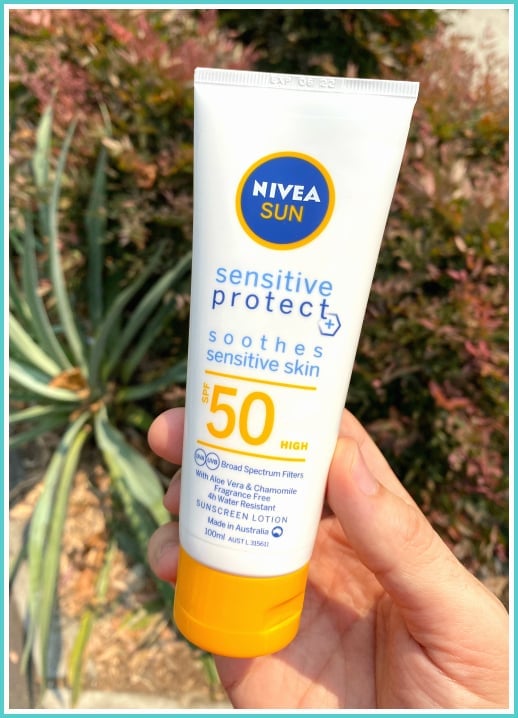

You know what’s worse than sensitive skin? Sensitive skin in summer.
The itch.
The inflammation.
A face that looks more tomato than human (when you haven’t even been out in the sun). It’s not much fun.
But you’re not suffering alone. There’s a huge proportion of the population who seek out sensitive skin products to avoid reactions to fragrances or even weather conditions.
Fortunately, us sensitive-skinned girls (and guys) don’t need to suffer at the hands of redness and reactivity.
To help with your sensitive skin issues this summer, we’ve called in a professional to find out more – NIVEA skincare expert Robyn Hutch.

